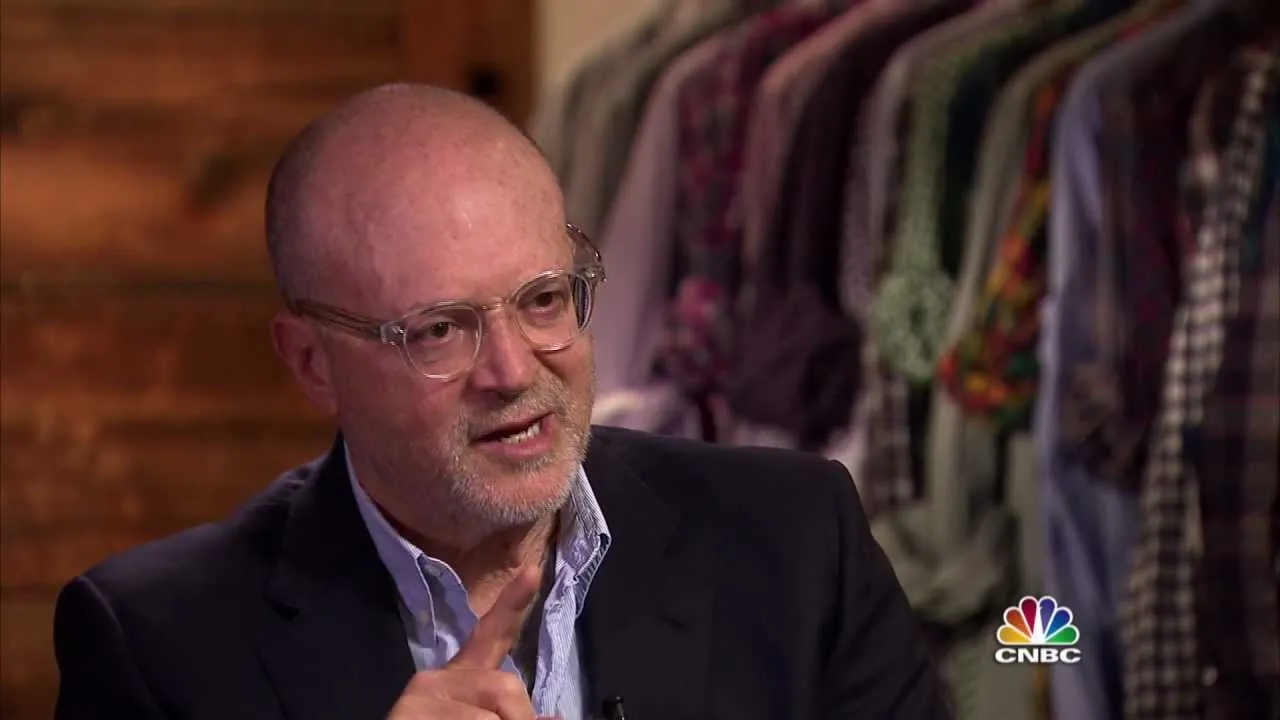

Former Gap and J.Crew CEOs Criticize American Eagle’s Sydney Sweeney Ad: Should Own Up and Apologize
The world of retail fashion is no stranger to controversy, especially when it comes to high-profile advertising campaigns. Recently, Mickey Drexler, the former CEO of both Gap and J.Crew, voiced strong criticism over American Eagle’s denim ad featuring actress Sydney Sweeney. In a recent episode of the Rapid Response podcast, Drexler shared his perspective on the brand’s handling of the situation, calling it a mistake that could have been avoided with better crisis management and clearer messaging.
Mickey Drexler’s Take on the American Eagle Ad
During the podcast interview, Mickey Drexler, a retail veteran with decades of experience, openly disapproved of American Eagle’s handling of the backlash that followed their latest denim campaign. According to Drexler, American Eagle should have issued a clear apology once the advertisement sparked criticism, rather than choosing to remain silent.
Drexler commented, “I thought that they should have, and they did not, talk to the issue, went silent. And that created more news.” He went on to suggest that the company would have been better off admitting fault and stating, “I screwed up, all right,” and “We learned the lesson.”

Background: The Sydney Sweeney Jeans Advertisement Controversy
In July, American Eagle launched a new campaign featuring Sydney Sweeney, a well-known actress, who appeared in a denim advertisement. The campaign, which centered around the slogan “Sydney Sweeney has great jeans,” was quickly met with backlash by critics who believed it subtly referenced genetics and heritage, sparking accusations that the ad had regressive implications.
The video featured Sweeney lying on the floor while buttoning up her jeans. She says in the ad, “Genes are passed down from parents to offspring, often determining traits like hair color, personality, and even eye color. My jeans are blue.”
While the brand later clarified that the campaign was meant to be a play on words — highlighting the double meaning between “jeans” and “genes” — critics remained unconvinced. The controversy soon escalated online, with some accusing the brand of insensitivity.
American Eagle’s Response and the Impact on Brand Image
On August 2, American Eagle issued a statement on Instagram attempting to address the controversy. The company explained, “The advertisement is and always was about the jeans. We’ll continue to celebrate how everyone wears their AE jeans with confidence, their way. Great jeans look good on everyone.”
Despite this response, Drexler believes the brand missed a critical opportunity to show authenticity and accountability. According to Drexler, the lack of a direct apology or acknowledgment of how the ad was perceived contributed to continued media coverage and public debate.
The incident reflects how brand communication, especially during a crisis, can dramatically influence public perception. In Drexler’s view, a more transparent approach could have mitigated some of the damage and preserved trust with American Eagle’s core customer base.
Mickey Drexler’s Industry Experience Brings Weight to His Opinion
Mickey Drexler is not just another industry observer — his words carry significant weight due to his extensive background in American retail fashion. As the former CEO of Gap from 1983 to 2002, and later J.Crew from 2003 to 2017, Drexler is credited with transforming both brands into household names. He was instrumental in launching Old Navy and founding Madewell, both now major players in the U.S. fashion market.
Drexler also served on Apple’s board of directors for nearly 16 years, bringing his retail insight to one of the world’s most iconic technology brands. Today, he is the chairman of Alex Mill, a clothing label known for its elevated basics.
His critique of American Eagle is not simply a matter of opinion — it reflects decades of firsthand experience managing brand identity, consumer behavior, and media fallout.
A Closer Look at the American Eagle Stock Performance
While the controversy surrounding the ad campaign certainly stirred conversation, the American Eagle stock has experienced mixed performance. Over the past month, the stock saw a 26% increase, suggesting short-term investor confidence or perhaps a response to increased visibility.
However, since the start of 2025, the stock has declined approximately 23%, indicating ongoing challenges in the retail sector. In May, American Eagle reported a 5% loss in net revenue during the first quarter, with sales totaling $1.1 billion. These figures suggest that while viral campaigns may generate attention, they don’t necessarily drive sustained revenue growth without effective execution and customer alignment.

Competitor Brands Respond with Their Own Campaigns
The stir created by the Sydney Sweeney ad didn’t go unnoticed by other denim brands. Gap, under new creative direction, responded with its own campaign that quickly went viral. The Gap jeans advertisement featured the girl group Katseye performing choreographed dance moves to the 2003 hit song “Milkshake” by Kelis. The ad was praised for its energetic vibe, inclusive casting, and nostalgic appeal.
This move by Gap appears to be a strategic attempt to reclaim market share and cultural relevance. It also highlights how denim brands are increasingly using social media-friendly campaigns to connect with younger audiences and counteract negative publicity.
The Lessons Brands Can Learn From This Situation
The American Eagle-Sydney Sweeney controversy offers valuable takeaways for brands navigating the modern marketing landscape:
1. Clarity in Messaging Is Crucial
Wordplay can be clever, but if it’s too ambiguous or misinterpreted, it can backfire. Brands must consider multiple interpretations of their campaigns and test messaging across diverse focus groups.
2. Swift and Transparent Responses Matter
In the age of social media, silence can be perceived as avoidance. Addressing criticism directly, even if it involves acknowledging mistakes, can earn more respect from consumers than defensiveness or ambiguity.
3. Brand Identity Must Be Consistent
A campaign that strays too far from a brand’s core identity or customer expectations risks alienating loyal customers. Brands need to understand their audience deeply and stay aligned with their values.
4. Industry Veterans Offer Insightful Perspectives
Retail leaders like Drexler have weathered many storms. Their critiques, even if blunt, are rooted in experience. For younger companies, listening to industry veterans can help avoid costly errors.
Will American Eagle Recover From the Backlash?
While it’s too early to determine the long-term impact of the Sydney Sweeney campaign, it’s clear that the ad — and American Eagle’s response — have sparked a broader conversation about marketing ethics, corporate accountability, and consumer trust.
As competition in the denim market intensifies, brands will need to be more intentional with their storytelling, more responsive to public feedback, and more authentic in how they communicate their values. Mickey Drexler’s critique may sting, but for American Eagle, it could serve as a necessary wake-up call.


















